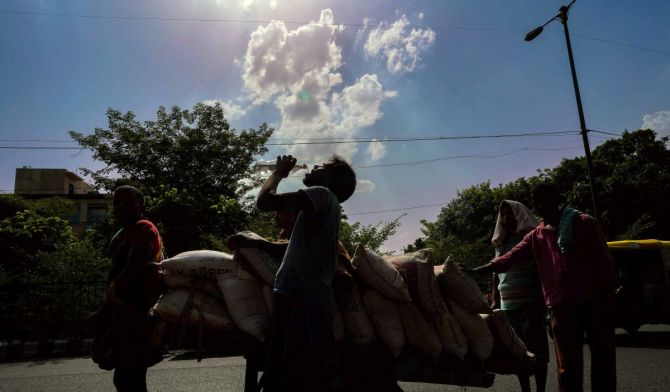An analysis of temperature data since 1970 shows that winters are quickly transitioning into summer-like conditions in north India, shortening the spring season.

Researchers at the US-based Climate Central, an independent group of scientists, conducted the analysis to place India within the context of global warming trends, focusing on the winter months (December to February).
The analysis revealed abrupt changes in temperatures occurring in late winter across north India.
The average temperatures in states in north India showed either a cooling trend or slight warming in January, followed by strong warming in February.
This indicates that these regions are now experiencing abrupt transitions from cool winter-like temperatures into much warmer conditions traditionally observed in March, the researchers said.
To show this change, the researchers calculated the difference between the warming rates in January and February, expressed as the change in average temperature since 1970.
The most significant jump in warming rates was observed in Rajasthan, where the average temperature in February was 2.6 degrees Celsius higher than in January.
A total of nine states and Union Territories -- Rajasthan, Haryana, Delhi, Uttar Pradesh, Himachal Pradesh, Ladakh, Punjab, Jammu and Kashmir, and Uttarakhand -- showed a January-February difference of more than 2 degrees Celsius.
This supports reports that it feels like spring has disappeared in many parts of India, the researchers said.
The analysis also suggested that winter, overall, is warming across India, with every region showing a net warming trend during these months.
Manipur experienced the largest change in average winter (December to February) temperature since 1970 (2.3 degrees Celsius) while Delhi had the smallest change (0.2 degrees Celsius).
The country's southern part has also been experiencing strong warming in December and January.
Sikkim (2.4 degrees Celsius) and Manipur (2.1 degrees Celsius) recorded the largest changes in temperature in December and January, respectively.
"The cooling in central and northern Indian states during January, followed by very strong warming in February, creates the potential for a quick jump from winter to spring-like conditions," said Andrew Pershing, vice-president for science at Climate Central.
Global average temperatures have risen by more than 1.3 degrees Celsius since 1850, exacerbating climate impacts, with 2023 being the hottest on record.
The CO2 spewed into the atmosphere, largely due to the burning of fossil fuels since the start of the Industrial Revolution, is closely tied to it.
Climate science says the world needs to slash CO2 emissions by 43 percent by 2030 to limit the average temperature rise to 1.5 degrees Celsius, the guardrail to prevent worsening of climate impacts.
The business-as-usual scenario will take the world to a temperature rise of around 3 degrees Celsius by the end of the century, scientists have warned.










